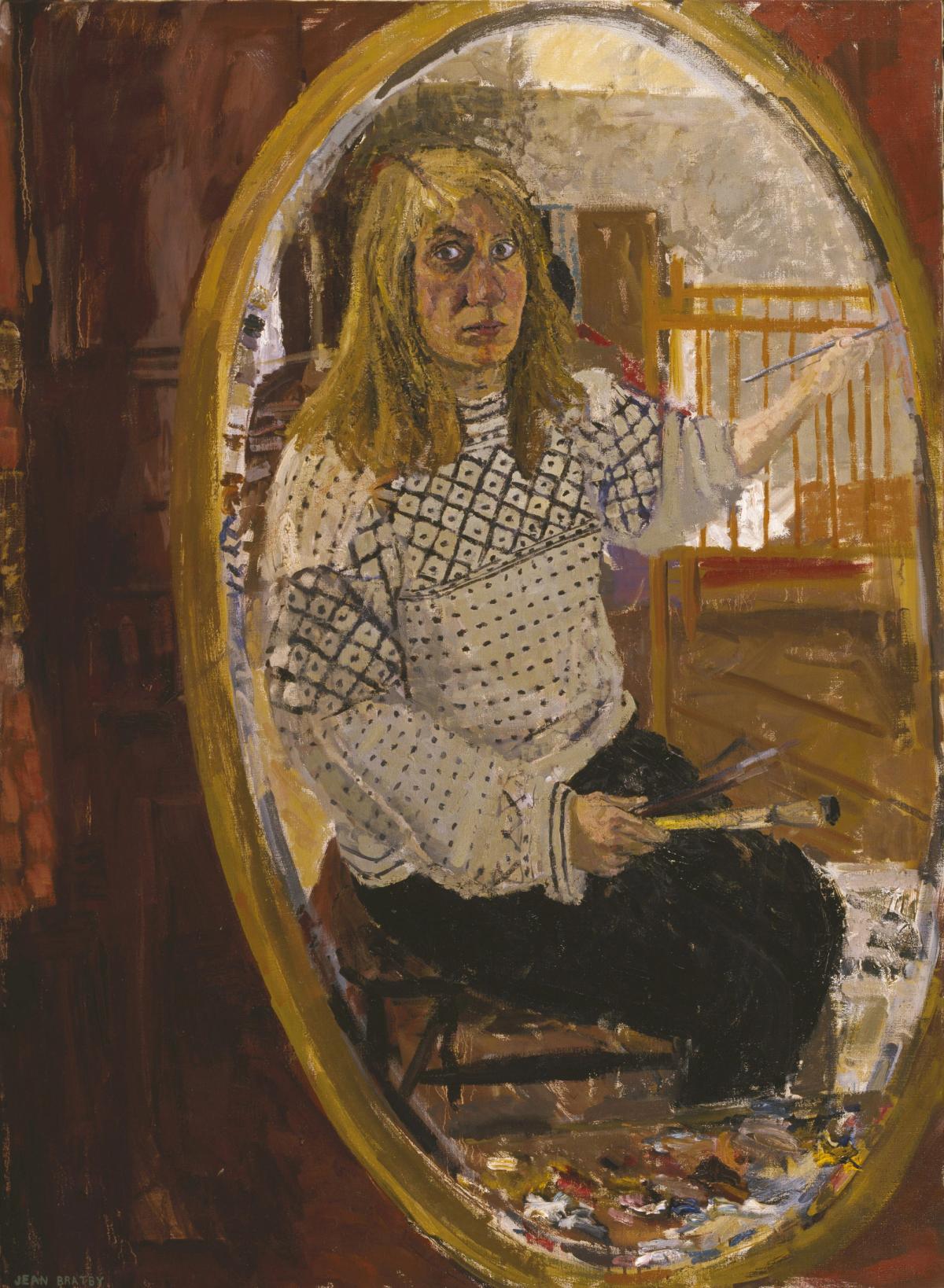The artist Jean Cooke (1927-2008) was not your typical gardener. Rather than cultivating nature, she let it loose. She had two gardens: a riotous city plot in London and a rambling cliff-top meadow in Sussex. “I think she was quite a wild person in a way,” says Andrew Lambirth, the curator of a new exhibition at the Garden Museum in south London, which will bring together Cooke’s mesmerising garden paintings and portraits. “Not in her behaviour, but she didn’t want to be controlled.”
In 1953 she married John Bratby, who became renowned for his realist paintings of cluttered kitchen tabletops. It was an abusive marriage, with Bratby allowing Cooke to paint for only three hours a day, and slashing her canvases. While well respected among fellow artists, she was little known to the public. Bratby painted her regularly, and the results were unflattering and brusque, which prompted her to reclaim her identity via candid self-portraits painted with a greater degree of interiority. “Her [self-portraits] aren’t flattering either,” Lambirth says, “but she looks at herself quizzically, recording what she looked like and also how she felt.”
Jean Cooke: Ungardening—a reference to how she once described her hobby in Who’s Who reference book—will include several self-portraits, one with a black eye, another cramped in an oval mirror with a fistful of brushes. Alongside them will be rich and nuanced studies of buttercups and irises, as well as lyrical paintings of her gardens.
The 1967 painting Hortus Siccus shows several versions of her son Jason amid a tangle of dried plants and flowers; Toujours en Fête (1969) depicts the artist and her three sons in a blooming meadow.
On view for the first time in almost 50 years, such large-scale compositions capture Cooke’s technical prowess and psychological insight even early on in her career. They offer a fresh and expressive view of nature and figures at one with foliage. “They are also, I think, paintings of a survivor,” Lambirth says. Cooke survived Bratby, and continued to paint after they separated in 1972. “She is a real power to be reckoned with,” Lambirth adds.
• Jean Cooke: Ungardening, Garden Museum, London, 21 June-10 September


